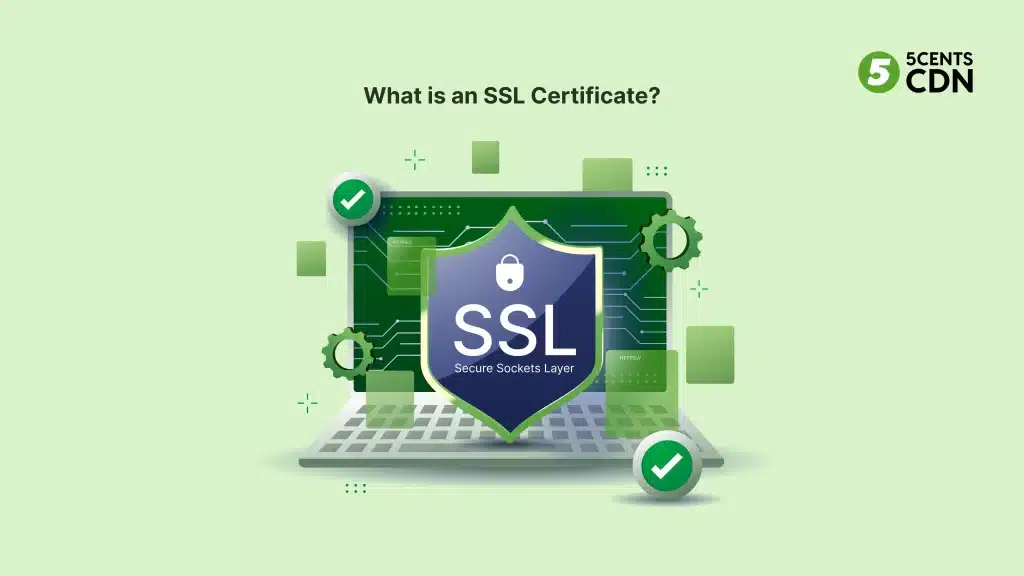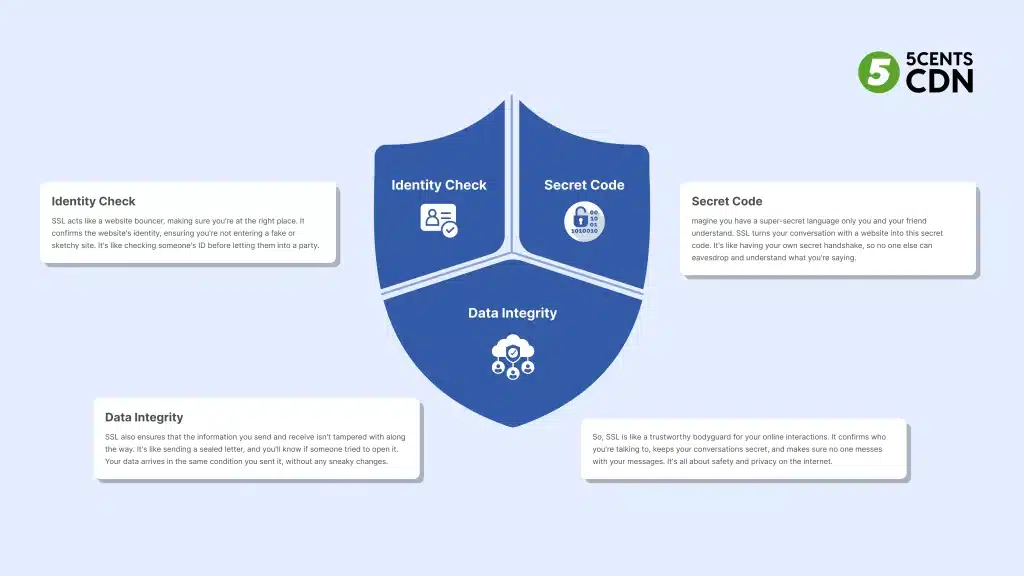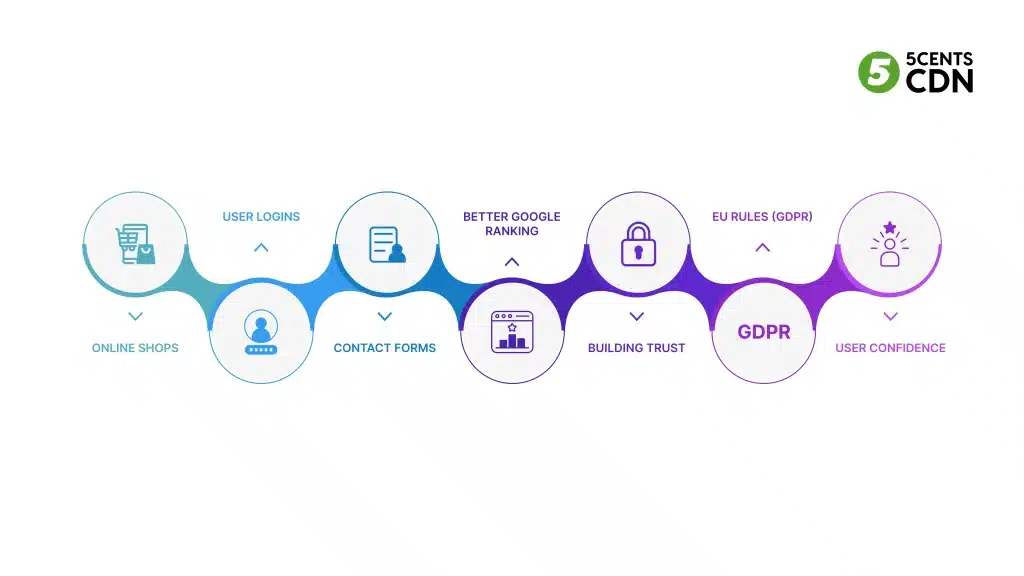In today’s digital age, where we share sensitive information online every day, security is no longer a luxury, but a necessity. Every time you enter your credit card details, log into your bank account, or even just send an email, you’re trusting that your data will be kept safe from prying eyes. This is where SSL certificates come into play. They are the unsung heroes of internet security, working tirelessly behind the scenes to protect your information and ensure a safe online experience.
What is an SSL Certificate?

Think of an SSL Certificate as a digital passport for your website. It’s a small data file that digitally binds a cryptographic key to your organization’s details. When installed on a web server, it activates the padlock and the HTTPS protocol and allows secure connections from a web server to a browser. In simpler terms, it’s like a digital badge of authenticity that verifies your website’s identity and encrypts the information exchanged between your website and its visitors.
Imagine you’re sending a confidential letter to a friend. You wouldn’t want just anyone to be able to read it during its journey, right? An SSL Certificate acts like a secure envelope that protects your letter’s contents, ensuring that only your friend, the intended recipient, can open and read it. Similarly, when you enter sensitive information like passwords or credit card details on a website, an SSL Certificate encrypts this data, making it unreadable to any malicious actors who might try to intercept it.
How Does SSL Work?

SSL, which stands for Secure Sockets Layer, utilizes a complex system of cryptography to secure your online interactions. Here’s a simplified breakdown of how it works:
Identity Verification:
When you visit a website secured with an SSL Certificate, your browser checks the certificate to verify the website’s identity. This ensures that you’re interacting with the genuine website and not a fraudulent imitation. It’s like checking someone’s ID card before allowing them entry into a secure building.
Encryption:
Once the website’s identity is confirmed, SSL establishes an encrypted connection between your browser and the website’s server. This means that any data exchanged between your browser and the server is transformed into a secret code that only the intended recipient can decipher. It’s like having a private conversation in a language that only you and the other person understand.
Data Integrity:
SSL also ensures that the information transmitted between your browser and the server remains unaltered during its journey. This means that no one can tamper with the data in transit, guaranteeing that it arrives at its destination in the same state it was sent. It’s like adding a tamper-evident seal to your letter, ensuring that you’ll know if anyone tried to open it before it reached your friend.
When is an SSL Certificate Required?

While every website can benefit from the security and trust provided by an SSL Certificate, certain types of websites absolutely require it:
E-commerce Websites:
If you’re selling products or services online, an SSL Certificate is non-negotiable. It protects your customers’ sensitive information, such as credit card details and personal data, during online transactions, building trust and ensuring compliance with industry standards like PCI DSS.
Websites with User Logins:
Any website that requires users to log in, whether it’s for email accounts, social media platforms, or online banking, needs an SSL Certificate to protect user credentials from unauthorized access.
Websites with Contact Forms:
Even simple contact forms that collect user information like email addresses and names should be protected with an SSL Certificate. This safeguards user data and prevents it from falling into the wrong hands.
Beyond Security: The Added Benefits of SSL Certificates
Besides the obvious security benefits, SSL Certificates offer several other advantages:
Improved SEO:
Search engines like Google consider website security a ranking factor. Websites with SSL Certificates are often given preference in search results, leading to higher visibility and increased organic traffic.
Enhanced Trust and Credibility:
The presence of an SSL Certificate, indicated by the padlock icon and HTTPS in the browser’s address bar, instills trust in visitors. It signals that your website is secure and committed to protecting user data, enhancing your brand’s reputation and credibility.
Compliance with Regulations:
Many industries and regions have data protection regulations, such as GDPR, that require websites to implement SSL Certificates to protect user privacy.
5centsCDN: Your Partner in Website Security
5centsCDN is committed to making website security accessible to everyone. That’s why we provide free SSL Certificates with all our CDN and CDN+ plans. You can enjoy the peace of mind that comes with a secure website without any added cost. With easy installation, competitive pricing, and 24/7 support, 5centsCDN makes it simple to secure your website and provide a safe and trustworthy online experience for your visitors.
Conclusion
In today’s interconnected world, an SSL Certificate is no longer an optional extra but a fundamental requirement for any website. It’s a powerful tool that protects sensitive information, builds trust with users, and enhances your website’s SEO performance. By securing your website with an SSL Certificate, you’re not just protecting data; you’re investing in your online reputation and the future of your digital presence.